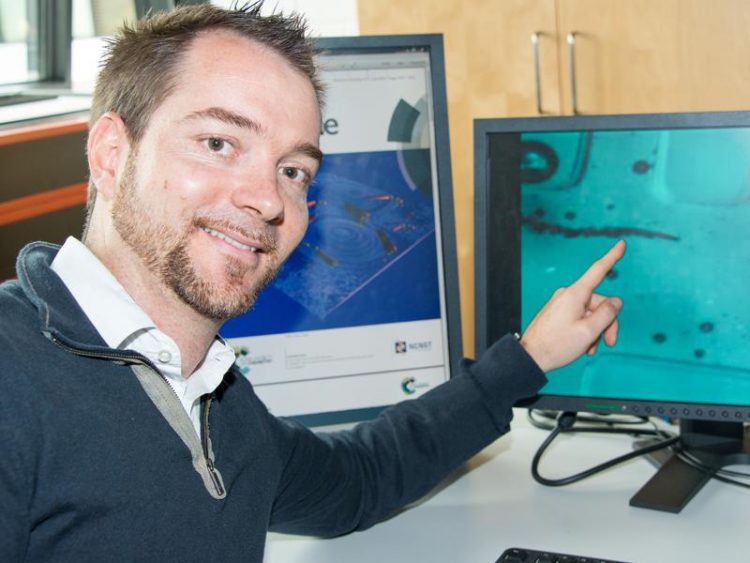Research group leader Samuel Sánchez is one of Spain’s top ten innovators

Dr. Samuel Sánchez at the Max Planck Institute for Intelligent Systems, Stuttgart Photo: Carmen-M. Müller
Samuel Sánchez however is already hard at work in his lab at the Max Planck Institute in Stuttgart to make these visions come true. For his innovative research, the 34 years old chemist has now been named as one of Spain’s top ten innovators under 35 by the Spanish edition of the journal MIT Technology Review.
The jury honored him for his significant contribution in the field of macro- and nanomotors as well as his interdisciplinary research approach. Sánchez combines materials sciences, chemistry and biology in his work to design and develop small-scale motors and their practical use.
Samuel Sánchez obtained his PhD in analytical chemistry at the Universitat Autònoma de Barcelona in 2008. He went on to work in Japan and the Leibniz Institute in Dresden. Since 2013, he heads a Max Planck Research group at the Max Planck Institute for Intelligent Systems in Stuttgart.
The Spanish edition of the journal MIT Technology Review has been giving out this innovation award for four years now. Together with Sánchez, nine other young Spanish scientists under the age of 35 have received this prize this year for their innovative achievements in various fields of technology. The award ceremony will take place in Valencia in November.
Weitere Informationen:
Media Contact
All latest news from the category: Science Education
Newest articles

Sea slugs inspire highly stretchable biomedical sensor
USC Viterbi School of Engineering researcher Hangbo Zhao presents findings on highly stretchable and customizable microneedles for application in fields including neuroscience, tissue engineering, and wearable bioelectronics. The revolution in…

Twisting and binding matter waves with photons in a cavity
Precisely measuring the energy states of individual atoms has been a historical challenge for physicists due to atomic recoil. When an atom interacts with a photon, the atom “recoils” in…

Nanotubes, nanoparticles, and antibodies detect tiny amounts of fentanyl
New sensor is six orders of magnitude more sensitive than the next best thing. A research team at Pitt led by Alexander Star, a chemistry professor in the Kenneth P. Dietrich…





















